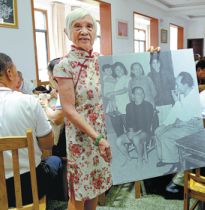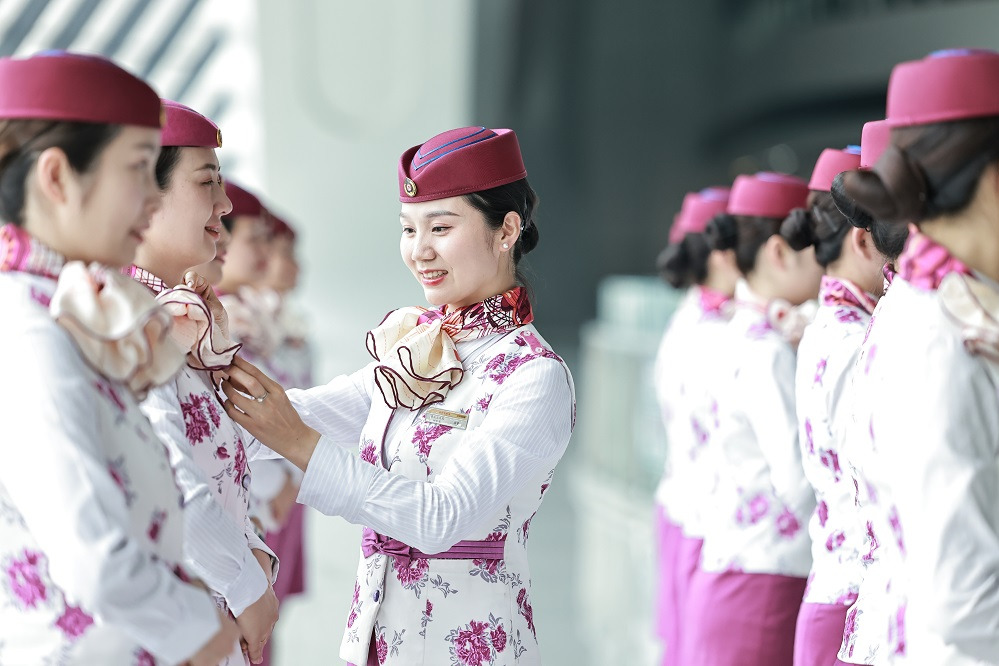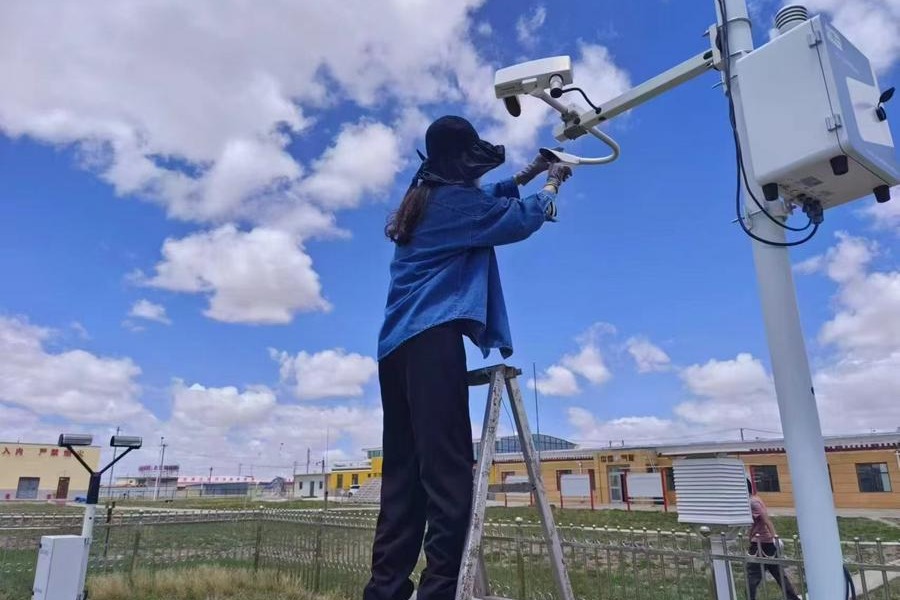From porridge stall to dining chain, restaurateur thanks Mao for success


Painting, calligraphy, singing and posting videos to short-video sharing platform Douyin, Tang Ruiren is not your typical 91-year-old.
But then the former farmer from Hunan province has led an atypical life, leaving the fields to become a self-made entrepreneur with more than 300 restaurants, famous for signature dishes like braised pork with soy sauce, and pepper with fermented soybean-both favorites of late Chinese leader, Mao Zedong.
Her Maojia (Mao's House) Restaurants employ more than 30,000 people and pay more than 200 million yuan ($31.3 million) in taxes annually.
Tang calls herself Mao's "neighbor" because her home was opposite the residence of the late leader in his hometown of Shaoshan.
Born in 1930 into a poor family, she was forced to beg for a living until she married at 14 and became a farmer.
Her husband, Mao Kaiqing, joined the army in 1947, three years after marriage, and fought during the Chinese People's War of Liberation in the late 1940s. With her husband away, Tang learned to support the family on her own.
She started her first business in 1984 with only 1.7 yuan, opening a small porridge stall for tourists visiting Mao's home in the village.
She earned more than 3 yuan the first day, four times what an ordinary farmer earned in a day.
At first, neither her husband nor the villagers approved of her venture because they considered it capitalism.
"I regained my confidence through the encouragement of my customers, who told me there was nothing shameful in earning money with one's own hands," she said.
Tang made more than 10,000 yuan in the three years after she started her business, a considerable amount at the time. In 1987, she expanded the porridge stall into a restaurant, taking advantage of the location of her home to feature the late Chinese leader's favorite dishes.
Although it served simple, daily fare, the restaurant attracted tourists visiting Mao's former residence.
The first Maojia branch in Beijing was set up in 1993, and Tang's business quickly expanded to other Chinese cities.
Tang ties her success to the founder of New China and often recalls the day Chairman Mao paid a visit to her home on June 25, 1959.
During their short conversation, the late leader asked about her hometown and the name of the baby in her arms, her firstborn son.
A picture depicting a grinning Mao sitting with villagers in Shaoshan, alongside Tang and her baby son, later became a poster that decorated millions of homes around the country.
Tang hung the picture in the middle of her restaurant, as well as portraits and bronze statues of Mao, and until today, the top priority at all her restaurants is to always treat Mao's customers well.
"I was an uneducated farmer. I'm grateful to Chairman Mao for my comfortable life," she said.
Giving back
Tang always tries to find ways to give back and has donated millions of yuan to different charitable causes.
She set up an education foundation, which so far has helped more than 1,000 children finish their studies. She has also adopted over 100 orphans and employs handicapped people and laid-off workers at her restaurants.
With the rapid development of her restaurant chain, she introduced a rule where laid-off workers, veterans and children from poor families should account for at least 70 percent of employees.
"We have money now and can live a much better life than before, but we must never forget the hardships we endured, so we should help others in need," she said.
"My mother requires us all to work honestly, and she sees our restaurants as windows to Shaoshan," says Tang's daughter, Mao Taozhi.
"She rarely complains, and is always strong and optimistic, even though she endured a lot of hardship," she continues. One of Tang's sons died in a car accident in the 1990s, and the other died from lung cancer in 2012. In addition, Tang has suffered from fractures at least 10 times, and at the age of 75, she was told by her doctor that she was dying from cancer.
None of this ever stopped her from working. Dressed in high heels and a qipao, the traditional one-piece, body-hugging Chinese dress, and carrying a walking stick, she still attends to customers at her restaurant in Shaoshan.
Many tourists come to the restaurants just to visit her, and Tang sometimes sings songs and takes pictures with them. She may be elderly, but this restaurateur is determined to give the best impression to all her customers.
- Delivering social benefits
- Shenzhou XIX crew returns safely to 'beautiful, blue' Earth
- Ordinary work, extraordinary workers
- AI agent to improve international law services in Shanghai
- Intl Services Shanghai expands reach with launch of Italian-language website, multimedia platforms
- China opened more than 900 national wetland parks in over two decades





































